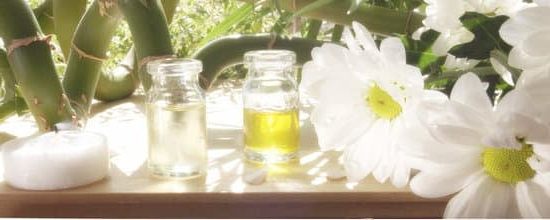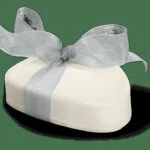Aromatherapy has been used for centuries as a natural way to promote health and well-being. But what do the aromatherapy scents do exactly? These scents, derived from essential oils, have powerful effects on the mind and body, aiding in everything from relaxation to boosting mood and energy levels.
The use of aromatherapy dates back to ancient civilizations such as Egypt, China, and India, where plant extracts were utilized for their medicinal properties. Over time, this practice evolved into what we now know as aromatherapy – a holistic approach to healing that harnesses the power of scent.
The science behind aromatherapy scents lies in the way our olfactory system interacts with these aromatic compounds. When inhaled, essential oils can stimulate specific areas of the brain, triggering various responses within the body. By understanding how different scents work, we can effectively use aromatherapy to enhance our overall well-being.
History of Aromatherapy and Its Origins
Aromatherapy has a rich history that dates back thousands of years, with its origins rooted in ancient civilizations such as Egypt, China, and India. The use of aromatic plant extracts for healing and wellness purposes can be traced back to these early cultures, where essential oils were used in religious ceremonies, medicine, and even in daily life.
The term “aromatherapy” was coined in the 20th century by a French chemist named René-Maurice Gattefossé, who accidentally discovered the healing properties of lavender oil after burning himself and finding that the oil helped to heal his wounds without scarring.
Throughout history, various cultures have incorporated aromatherapy into their traditional practices for its therapeutic benefits. In ancient Egypt, essential oils were used in religious rituals, cosmetics, and embalming processes. Chinese medicine also utilized aromatic herbs and oils for their medicinal properties to balance the body’s energy flow. Similarly, Ayurveda, an ancient holistic healing system from India, incorporates aromatherapy as a means to balance the mind, body, and spirit through the use of essential oils derived from plants.
The science behind aromatherapy scents lies in the interaction between the olfactory system (sense of smell) and the limbic system (emotional center) in the brain. When inhaling different aromas, specific scent molecules are transmitted to the limbic system which then triggers emotional responses and physiological changes in the body.
For example, inhaling lavender essential oil can promote relaxation and reduce stress levels due to its calming properties. Understanding the historical roots of aromatherapy helps us appreciate how this ancient practice has evolved into a modern holistic approach to wellness that continues to provide comfort and healing effects today.
- Ancient Egypt: Essential oils used in religious rituals
- Chinese Medicine: Utilized aromatic herbs for medicinal purposes
- Ayurveda: Aromatherapy integrated into holistic healing practices
Understanding the Science Behind Aromatherapy Scents
Aromatherapy is a holistic healing treatment that uses natural plant extracts, known as essential oils, to promote overall well-being. These essential oils are derived from flowers, trees, seeds, roots, and other plant parts and carry various therapeutic properties. The science behind aromatherapy scents lies in the way these essential oils interact with our senses and brain to produce physical and psychological effects.
How Aromatherapy Scents Work
When inhaled, the aromatic molecules of essential oils stimulate the olfactory system in our noses. The olfactory system is directly connected to the limbic system in the brain, which is responsible for emotions, memories, and behavior. This direct connection allows the aromatic compounds of essential oils to impact our mood, stress levels, cognition, and even physiological functions like heart rate and blood pressure.
The Role of Aromachemicals
Essential oils contain naturally occurring chemicals that give them their distinct aroma and therapeutic properties. For example, lavender essential oil contains linalool, known for its calming effects; while citrus oils like lemon or orange contain limonene, which can uplift mood and increase alertness. These aromachemicals work synergistically to create unique scents that can target specific issues such as anxiety relief, mental clarity enhancement, or even pain management.
The Importance of Quality Essential Oils
When using aromatherapy scents for their therapeutic benefits, it is crucial to choose high-quality essential oils. Pure essential oils extracted through methods like steam distillation or cold-pressing retain their potent aromatic compounds and therapeutic properties.
Synthetic fragrances or diluted oils may not provide the same benefits as they lack the natural complexity of pure essential oils. It is advisable to purchase essential oils from reputable sources and ensure they are labeled as 100% pure and organic for maximum effectiveness.
Popular Aromatherapy Scents and Their Effects on the Mind and Body
Aromatherapy is a holistic healing treatment that uses natural plant extracts to promote overall well-being. The use of aromatherapy scents can have a profound effect on both the mind and body, providing various therapeutic benefits. Different scents have different properties that can influence our mood, emotions, and even physical health. Understanding the effects of popular aromatherapy scents can help individuals choose the right ones to address their specific needs.
Lavender is one of the most popular aromatherapy scents known for its calming and relaxing properties. It is often used to reduce stress, anxiety, and promote better sleep. The scent of lavender has been shown to lower heart rate and blood pressure, creating a sense of tranquility in individuals.
Peppermint, on the other hand, is invigorating and helps boost energy levels. Its refreshing aroma can increase focus and mental clarity, making it a great choice for enhancing productivity during the day.
Citrus scents such as lemon and orange are uplifting and energizing aromas that can help elevate mood and combat feelings of fatigue or lethargy. These scents are often used to create a sense of happiness and positivity in individuals. Eucalyptus is another popular aromatherapy scent known for its respiratory benefits.
It can help clear the sinus passage, alleviate congestion, and promote easier breathing. By understanding the effects of these popular aromatherapy scents, individuals can harness their therapeutic properties to promote overall wellness in both mind and body.
How to Use Aromatherapy Scents for Relaxation and Stress Relief
Aromatherapy scents can be a powerful tool for relaxation and stress relief, helping to promote a sense of calm and tranquility in both the mind and body. By understanding how different scents affect our senses, we can harness the benefits of aromatherapy to enhance our well-being. Here are some ways to effectively use aromatherapy scents for relaxation and stress relief:
- Diffuser: One popular method is using a diffuser to disperse essential oils into the air, allowing you to inhale the soothing scents. Simply add a few drops of your preferred essential oil, such as lavender or chamomile, to the diffuser and let it fill the room with calming fragrance.
- Topical Application: Another way to use aromatherapy scents is through topical application. Dilute essential oils with a carrier oil like coconut or jojoba oil, then apply onto pulse points like wrists, temples, or neck for a relaxing effect.
- Bath Soak: Create a luxurious spa-like experience by adding a few drops of essential oils to your bathwater. Soaking in aromatic waters infused with scents like eucalyptus or ylang-ylang can help melt away stress and tension from your body.
These methods not only provide immediate relaxation but also help create a peaceful environment conducive to reducing stress levels. Experiment with different aromatherapy scents to find what works best for you and incorporate them into your daily routine for optimal relaxation and stress relief.
Remember that consistency is key when using aromatherapy scents for relaxation and stress relief. Incorporating these techniques into your daily self-care routine can have long-lasting effects on your overall well-being. Take the time to unwind and destress with the power of aromatherapy scents, allowing yourself to fully immerse in their calming benefits.
Aromatherapy Scents for Better Sleep and Insomnia Relief
Aromatherapy has been used for centuries as a natural remedy to promote better sleep and provide relief from insomnia. The soothing scents of certain essential oils have been found to have a calming effect on the mind and body, helping individuals unwind and prepare for a restful night’s sleep. Lavender, chamomile, and sandalwood are some popular aromatherapy scents known for their sedative properties that can aid in improving sleep quality.
Lavender, in particular, has been extensively studied for its ability to reduce anxiety and improve sleep patterns. Its sweet floral aroma is commonly used in diffusers or sprays to create a relaxing environment conducive to falling asleep.
Chamomile, with its gentle and soothing scent, is another popular choice for promoting relaxation and reducing stress levels before bedtime. Sandalwood, with its woody and warm fragrance, is often used to calm the mind and induce a sense of tranquility that leads to better sleep.
When it comes to using aromatherapy scents for better sleep and insomnia relief, incorporating them into your bedtime routine can make a significant difference in your overall quality of rest. Whether through diffusion, topical application, or adding a few drops to your pillow or bedding, these essential oils can help signal the brain that it’s time to wind down and prepare for sleep.
By integrating aromatherapy scents into your nightly rituals, you may find yourself drifting off more easily and experiencing longer periods of uninterrupted restorative sleep.
Boosting Mood and Energy Levels With Aromatherapy Scents
Aromatherapy scents have been used for centuries to boost mood and energy levels. The use of specific essential oils can have a direct impact on your mental and emotional well-being.
For example, citrus scents like lemon or orange are known to be uplifting and energizing, while floral scents like lavender or rose can help in reducing stress and promoting relaxation. Understanding the effects of different aromatherapy scents can help you choose the right ones to enhance your mood and increase your energy levels.
One of the key benefits of using aromatherapy scents for boosting mood is their ability to influence the limbic system in the brain, which controls emotions and memories. When you inhale certain scents, it can trigger positive responses that uplift your spirits and improve your overall outlook. This makes aromatherapy a powerful tool for managing emotions and enhancing mood naturally.
In addition to improving mood, certain aromatherapy scents can also increase energy levels. Scents like peppermint or eucalyptus have invigorating properties that can help combat fatigue and increase alertness. Whether you’re feeling tired in the afternoon or need a pick-me-up in the morning, using these energizing aromatherapy scents can provide a natural way to boost your energy without relying on caffeine or other stimulants.
| Aromatherapy Scent | Effects |
|---|---|
| Lemon | Uplifting and energizing |
| Lavender | Reduces stress and promotes relaxation |
| Peppermint | Invigorating and combats fatigue |
Combining Aromatherapy Scents for a Personalized Experience
Aromatherapy, the practice of using natural oils extracted from flowers, stems, roots, or other parts of a plant to enhance psychological and physical well-being, offers a wide range of scents that can be combined for a personalized experience. Each essential oil carries its unique properties and benefits. By combining different aromatherapy scents, you can create customized blends tailored to your specific needs and preferences.
One popular way to combine aromatherapy scents is through creating synergy blends. These are combinations of essential oils that work together to enhance each other’s properties and create a more potent effect. For example, blending lavender with chamomile can promote relaxation and improve sleep quality. Similarly, combining citrus oils like lemon and bergamot can help boost mood and energy levels.
When deciding how to combine aromatherapy scents for a personalized experience, it’s essential to consider the desired outcome. Whether you’re looking to relax after a long day, alleviate stress and anxiety, or improve focus and concentration, there is an ideal blend of essential oils for every purpose. Experimenting with different combinations can help you discover what works best for you and enhances the overall effectiveness of aromatherapy in your daily routine.
In addition to creating synergy blends, another way to personalize your aromatherapy experience is by using scent layering techniques. This involves applying different essential oils at various times throughout the day or in different areas of your home or workspace. By layering scents strategically, you can enjoy a continuous aromatic experience that supports your well-being on multiple levels throughout the day.
| Aromatherapy Blend | Effects |
|---|---|
| Lavender + Chamomile | Promotes relaxation and improves sleep quality |
| Lemon + Bergamot | Boosts mood and energy levels |
Safety Precautions and Best Practices When Using Aromatherapy Scents
Aromatherapy is a widely popular practice that involves using natural scents to promote overall well-being, relaxation, and healing. While aromatherapy can have numerous benefits for the mind and body, it is essential to use these scents safely and correctly to avoid any adverse reactions or side effects. In this section, we will discuss some safety precautions and best practices to keep in mind when incorporating aromatherapy scents into your daily routine.
Patch Test Before Use
Before using any new essential oil or aromatherapy scent directly on your skin, it is crucial to perform a patch test to check for any potential allergic reactions or skin sensitivities. Simply dilute a small amount of the essential oil with a carrier oil, such as coconut oil or almond oil, and apply it to a small area of skin. Wait 24 hours to see if there are any adverse reactions before using the oil more extensively.
Proper Dilution
Essential oils are highly concentrated substances that should never be applied directly to the skin in their undiluted form. Always dilute essential oils with a carrier oil before applying them topically. The recommended dilution ratio is typically around 2-5 drops of essential oil per teaspoon of carrier oil. This helps prevent skin irritation and allows for safe use of the aromatherapy scent.
Inhalation Safety
When using aromatherapy scents for inhalation purposes, such as in a diffuser or steam inhalation, make sure to follow the manufacturer’s guidelines for proper usage. Avoid inhaling essential oils for extended periods and always use them in well-ventilated areas. If you have respiratory conditions like asthma or allergies, consult with a healthcare professional before using strong aromatherapy scents that may trigger symptoms.
By following these safety precautions and best practices when using aromatherapy scents, you can enjoy all the therapeutic benefits they have to offer while minimizing any potential risks or adverse effects. Remember that everyone reacts differently to essential oils, so it’s essential to listen to your body and adjust your usage accordingly for a safe and enjoyable experience.
Conclusion
In conclusion, aromatherapy scents have been utilized for centuries as a natural way to enhance overall well-being. The history of aromatherapy dates back to ancient civilizations, where the therapeutic benefits of botanical essences were appreciated and utilized. Understanding the science behind aromatherapy scents reveals how these fragrances interact with our olfactory system, influencing our emotions, mood, and even physical health.
Popular aromatherapy scents like lavender, peppermint, and eucalyptus each have unique effects on the mind and body. Lavender is known for its calming properties, while peppermint can invigorate and increase focus. Eucalyptus is commonly used for respiratory relief. When used correctly, these scents can promote relaxation, reduce stress levels, aid in sleep quality, boost energy levels, and elevate mood.
By incorporating aromatherapy scents into daily routines through methods like diffusing essential oils or using them in baths and massages, individuals can experience a personalized sensory experience that caters to their specific needs. It is important to follow safety precautions when using aromatherapy scents to prevent adverse reactions or sensitivities.
Ultimately, harnessing the power of aromatherapy scents can contribute to a holistic approach to wellness and enhance one’s quality of life. So next time you ask yourself “what do the aromatherapy scents do,” remember that they have the potential to positively impact your overall well-being.
Frequently Asked Questions
What Do Different Aromatherapy Scents Do?
Different aromatherapy scents serve various purposes and can have different effects on the mind and body. For example, lavender is known for its relaxing properties, while peppermint is often used to energize and promote focus. Citrus scents like lemon or orange are uplifting and can help improve mood.
What Are the 7 Essential Oils?
The 7 essential oils commonly used in aromatherapy are lavender, tea tree, eucalyptus, peppermint, chamomile, rosemary, and lemon. Each of these oils has unique benefits and can be used alone or blended with other oils to create a desired fragrance or effect.
What Essential Oils Are Used for What?
Lavender essential oil is popular for promoting relaxation and sleep quality, while tea tree oil is known for its antibacterial properties and ability to treat skin conditions like acne. Eucalyptus oil is often used to relieve cold symptoms by clearing the sinuses, while peppermint oil can help alleviate headaches and improve mental clarity.
Chamomile oil is calming and soothing for both the mind and body, whereas rosemary oil may aid in memory retention and concentration. Lemon oil is refreshing and uplifting, making it a common choice for boosting mood and energy levels during stressful times.

Are you looking for a natural way to improve your health and wellbeing?
If so, aromatherapy may be the answer for you.





